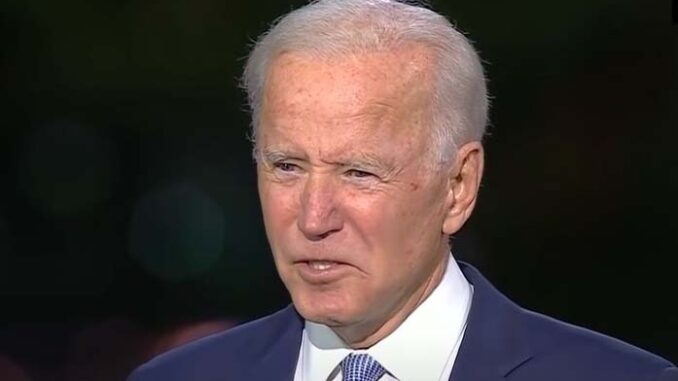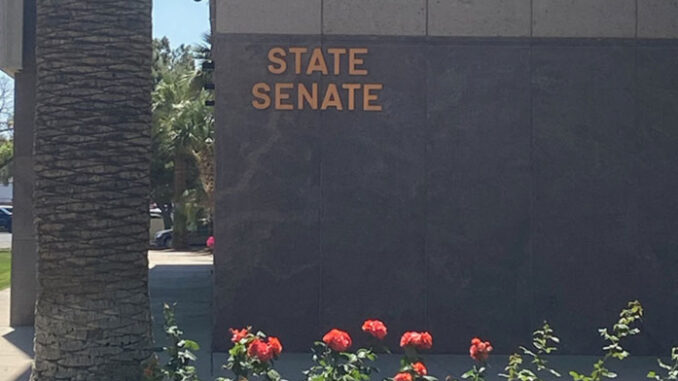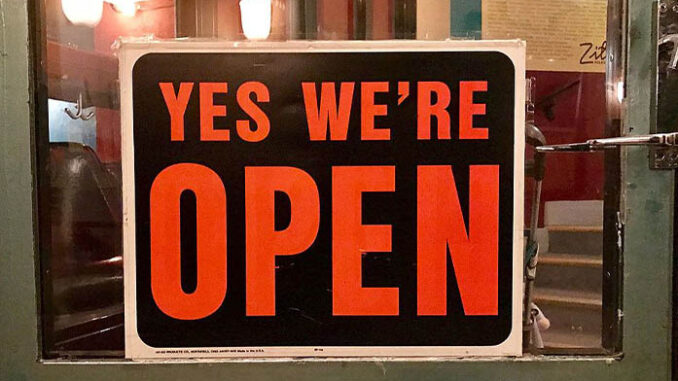
by Daniel Stefanski | Sep 18, 2023 | News
By Daniel Stefanski |
The 2023 Super Bowl may be long over, but political fallout is continuing into the start of the next football season.
On Thursday night, veteran Arizona reporter Dennis Welch and one of his colleagues released a story that “according to public records, the Arizona Office of Tourism gifted the Governor’s Office twelve tickets (to the Super Bowl)” and that “members of Hobbs’ staff used the remaining half dozen… worth tens of thousands of dollars.”
Two of the six Hobbs’ staffers who reportedly received tickets to the Super Bowl in Glendale, Arizona are no longer with the office, having departed earlier this year.
The Arizona’s Family journalists shared the existence of A.R.S. 41-1232.08, which bars “elected officials and public servants from accepting (the free tickets).” The statute reads, “A state officer or state employee shall not accept an expenditure or single expenditure for entertainment from a principal, designated lobbyist, authorized lobbyist, lobbyist for compensation, public body, designated public lobbyist or authorized public lobbyist or any other person acting on that person’s behalf.”
Republican legislators were quick to react to the breaking news, The Arizona Freedom Caucus posted, “Corruption in Governor Hobbs’ administration! Katie Hobbs’ staff accepted free Super Bowl tickets estimated to cost $7,000 per ticket. AZ has laws that make it ILLEGAL for Public Servants and Elected Officials to accept gifts over $25.00 in value. This is flat out corruption.”
Senate President Pro Tempore T.J. Shope wrote, “I purchased my nosebleed seats and these folks go for free in I’m sure way better seats than what I paid for? Cool scam for them eh Dennis Welch? Rules for thee and none for me is the mantra of the Governor Hobbs’ Administration I suppose…”
Freshman Representative Cory McGarr opined, “I’m sure we will see a full Hunter Biden investigation. Nothing to see here.”
Shope also responded to an account that had attempted to argue that the Governor’s Office reported actions were “perks of being in a high office,” saying, “Huh breaking the law is NOT ‘one of the perks’ of being in high office, nor should it be. Why would I want to break the law when I can pay for them honestly. I’m sure that’s difficult to understand for some but being ethical is something three generations of elected Shope’s have had in common. These are the people educating your kids folks…people who think people in high office have a right to break the law.”
In their report, the journalists revealed that “the previous Governor, Doug Ducey, received twenty tickets to the 2015 Super Bowl in Glendale,” and that they were told “Ducey paid face value for his ticket and distributed the remaining tickets to veterans groups.” The journalists added that “at the time, Ducey prohibited his staff from taking free tickets over concerns it was against the law.”
Daniel Stefanski is a reporter for AZ Free News. You can send him news tips using this link.

by Corinne Murdock | Sep 18, 2023 | News
By Corinne Murdock |
Rep. Greg Stanton (D-AZ-04) and Phoenix Mayor Kate Gallego will host a re-election campaign fundraiser for President Joe Biden later this month.
The reception will take place Sept. 28 through the Biden Victory Fund. Tickets range from a $3,300 minimum to $100,000. The location of the event is confidential, for attendees only.
The fundraiser will occur the day after the first Republican Party presidential debate in Simi Valley, California.
The contact for the event, Guicela Sandoval-Lopez, is a political consultant with the Democratic National Committee (DNC) and the Susie T. Buell Foundation.
Gallego told reporters that she’s confident Arizona will remain a blue state in 2024.
The pair are also on the campaign trail defending their incumbency. Though Stanton entertained a challenge to Sen. Kyrsten Sinema (I-AZ), he announced at the start of the year that he intended on remaining in the House.
The mayor and her council — along with her former husband and Stanton’s fellow congressman, Ruben Gallego (D-AZ-03) — have been petitioning for the Biden administration to declare the desert heat as an emergency. Such a declaration would ensure a consistent and ample source of federal funding for various municipal projects.
The Biden administration appears to be heeding that request. In July, Biden issued several heat relief directives in a joint call with Gallego and San Antonio, Texas Mayor Ron Nirenberg.
Biden’s directives resulted in a Heat Hazard Alert outlining federal heat-related protections, as well as increased enforcement mechanisms by the Labor Department.
Despite those actions and the administration’s estimation of $50 billion in funding to counter heat due to climate change, Gallego told Biden that Phoenix needed more.
“We would love it if Congress would give you the ability to declare heat a disaster,” said Gallego. “We think that could really save additional aid, and that would even more multiply the impact of FEMA Hazard Mitigation Assistance and Building Resistant — Resilience Infrastructure — the BRIC programs, which are a good start to building long-term solutions, such as energy redundancy for cooling centers.”
The Phoenix mayor has remained a steadfast supporter of the president. She helped his initial campaign as well.
In 2021, Gallego was one of eight mayors invited to the White House to weigh in on proposed infrastructure funding, some of which reportedly went to combating climate change.
Corinne Murdock is a reporter for AZ Free News. Follow her latest on Twitter, or email tips to corinne@azfreenews.com.

by Corinne Murdock | Sep 18, 2023 | News
By Corinne Murdock |
A federal jury has found GOP congressional candidate Jeff Zink’s son, Ryan Zink, guilty of all charges pertaining to his involvement in January 6.
The District Court of Columbia jury found Zink guilty of all three counts in under half an hour: obstruction of an official proceeding, U.S.C. § 1512(c)(2); entering or remaining in a restricted building or grounds, U.S.C. § 1752(a)(1); disorderly or disruptive conduct in a restricted building or grounds, U.S.C. § 1752(a)(2).
The three offenses altogether carry up to 22 years’ imprisonment.
The Department of Justice (DOJ) dropped a fourth charge in his case, engaging in disorderly conduct in a capitol building U.S.C. § 5104(e)(2)(D), which would’ve warranted up to six additional months in prison.
Zink maintains that he didn’t go inside the Capitol building, and that he was present within the crowd as a media representative for his father’s campaign.
“Not everyone went inside. It was a small group of about I would say 25-30 people and they were the only combative ones[.] I got super close and documented everything[.] I’m not some radical right wing nut job I literally took pictures of them and saw the tattoos[;] it’s not hard to identify,” wrote Zink. “If you were there you could have seen this[,] it was different in my life and in reporting I have seen what riots and violence looks like[;] this was planned strategic trained tactical[;] this was no ordinary rue [sic] it was a planned thing.”
In video evidence obtained by the DOJ, Zink recorded himself traveling within a crowd up to the Capitol building, in which he admitted to knocking down the gates and expressing an intent to breach the building.
“We knocked down the gates! We’re storming the Capitol!” said Zink. “You can’t stop us!”
It was an anonymous social media follower of Zink’s who reported him to the DOJ. According to the DOJ, that follower also reported two other unnamed individuals in attendance at the protest.
Zink says he plans to appeal.
Zink is crowdfunding for his legal fees. As of press time, Zink has raised nearly $8,000 of his $40,000 legal goal.
Corinne Murdock is a reporter for AZ Free News. Follow her latest on Twitter, or email tips to corinne@azfreenews.com.

by Daniel Stefanski | Sep 17, 2023 | News
By Daniel Stefanski |
The crisis at America’s southern border continues to have historic repercussions for Arizona.
On Wednesday, Fox News reporter Bill Melugin revealed that thousands of migrants illegally crossing the southern border into Arizona were being released into border communities. He wrote, “NEW: Per Border Patrol sources, street releases of migrants who crossed illegally are beginning today in the Tucson, AZ sector due to CBP facilities being overcapacity. The Tucson sector alone saw over 2,000 illegal crossings yesterday in a 24 hour span. Mass releases underway.”
Melugin added, “We have a cameraman in the sector right now, where large numbers of single adult men from Africa have been crossing illegally, including many from Senegal. People from all over the world arrive in the Tucson sector.”
The information specific to the Tucson sector followed a report from Melugin the previous day, where he shared the following – “NEW: Per CBP sources, yesterday alone, Border Patrol apprehended over 7,400 illegal immigrants at the southern border, & when combined with CBP ports of entry, there were over 9,100 migrant encounters in one day. I’m told CBP released 5,000+ yesterday w/ a notice to appear. As of this morning, CBP had over 21,000 people in custody.”
NewsNation reporter Ali Bradley also chimed in on the situation on the ground in Arizona, focusing in on the southeastern part of the state. She stated, “Migrants are being released into Cochise County communities right now – Sheriff Mark Dannels confirms the releases are a direct result of over-capacity by CBP. Sheriff Dannels is frustrated with the situation saying, ‘The migrants being released are from outside Cochise County but were bussed to Cochise County, processed and then released. Cochise County is a rural county with limited resources leaving these migrants vulnerable. In short, this lack of humanitarian consideration poses risk for the migrants.”
Members of the Arizona Legislature weighed in on the topic of border security this week. Senators T.J. Shope and Priya Sundareshan debated the issue on social media after Sundareshan reposted a video targeting the Trump administration for environmental abuses and more, writing, “Horrific, permanent destruction of our Sonoran desert treasures, just to hastily and shoddily construct an ineffective barrier and monument to racism.”
Shope responded, “Chair of Dem AZ Senate election effort believes securing our border is ‘monument to racism.’”
Senator Sundareshan retorted, “I think even your side knows that there are ways to use modern technology to achieve border security, instead of this medieval and ineffective approach. But y’all built a wall to prove you were ‘doing something.’”
Shope volleyed, “My side knows an all-of-the-above approach works. Physical barriers, law enforcement officers, and yes, modern technology. Not sure why that’s so hard…”
Daniel Stefanski is a reporter for AZ Free News. You can send him news tips using this link.

by Daniel Stefanski | Sep 17, 2023 | News
By Daniel Stefanski |
The future of another one of Arizona Governor Katie Hobbs’ agency directors is in legislative peril.
On Thursday, the Senate’s Committee on Director Nominations voted to recommend a ‘no’ vote on Hobbs’ selection for the Director of the Arizona Department of Housing, Joan Serviss.
In a press release announcing the result of the committee’s vote, the Senate Republican Caucus shared that “during questioning of Serviss, troubling information came to light regarding a history of repeated and seemingly pervasive plagiarism while serving as Executive Director with the Arizona Housing Coalition. The Caucus added, “Over a period of about four and a half years, an alarming number of individual statements were documented as written by other groups, but presented by Ms. Serviss as her own original works,” and “under her leadership, both government entities and the public were misled, threatening the credibility of this organization.”
The chairman of the committee, Senator Jake Hoffman, released a statement after the official recommendation, saying, “It’s frustrating that the Hobbs Administration once again did not conduct proper vetting of a nominee tasked with leading a critical agency, like the Arizona Department of Housing. We’ve carried out our due diligence and have so far identified several unqualified, partisan individuals placed by Hobbs in these positions of power that directly impact the lives and livelihoods of our citizens. As I stated during this hearing, we cannot have a Manchurian candidate who will blindly follow the direction of special interest groups. We need independent thinkers who are seeking to serve only the best interests of our state and our taxpayers. In the absence of Hobbs conducting her own thorough vetting, the Committee on Director Nominations will continue to ask the tough questions of these individuals because it is what our citizens expect of us, and our state can only afford to advance highly qualified directors to lead our agencies.”
According to the release prepared by the Senate Republican Caucus, “with the Director of the Arizona Department of Housing responsible for overseeing hundreds of millions in taxpayer dollars to address homelessness and affordable housing issues, it became apparent that Ms. Serviss would be unfit to serve in this position” leading to the 3-2 vote against her appointment. Unless the governor withdraws this nomination, the full Senate will likely vote on Serviss when it reconvenes in 2024.
Senate Democrats were outraged by the committee’s rejection of Serviss. Two Senators, Lela Alston and Flavio Bravo, quickly issued a press release, condemning the action. Alston said, “I have sat in more legislative committees than I would like to admit, but I have never seen worse behavior than that which was displayed by Senator Hoffman today. Director Serviss is broadly supported by veterans, housing experts, community members, and those in the advocacy community for this role.” Bravo added, “The accusations Republicans chose to throw were not that of a legislative official who should easily be able to distinguish the difference between an advocacy letter and an academic paper…He (Hoffman) put his own personal disagreements with Governor Hobbs above the dire needs of Arizonans in urgent need of housing.”
Alston also attempted to divide Republicans on the panel in her statement, expressing sympathy for Senators Wadsack and Shope allowing “themselves to be dragged along by Hoffman in his childish exercise in ego.” Both Republicans didn’t appear to see the situation as their Democrat colleagues. Shope reposted the Senate Republicans’ press release on the hearing and its result, while Wadsack stated, “It was an honor to sit on the DINO Committee today.”
Serviss was one of Hobbs’ first appointments to cabinet-level positions back in December 2022 – before the Democrat was sworn into office. In announcing the nominations of Serviss and others on December 27, Hobbs said, “These are some of the best minds Arizona has to offer, and I am proud that they have chosen to serve the people of Arizona by my side. As a social worker, I know firsthand the importance of these crucial agencies to the lives of the people who need them. I am confident that this group of talented individuals has what it takes to transform our state’s health, social, and safety systems so that they work for everyone across Arizona.”
Daniel Stefanski is a reporter for AZ Free News. You can send him news tips using this link.

by Daniel Stefanski | Sep 16, 2023 | Economy, News
By Daniel Stefanski |
American small business owners are not becoming more optimistic with the trends of the nation’s economy.
This week, the National Federation of Independent Business (NFIB) released its Small Business Optimism Index for August 2023, showing a decrease that month, marking twenty straight months that the index has been under the 49-year average of 98.
NFIB revealed that “twenty-three percent of small business owners reported that inflation was their single most important business problem, up two points from last month,” and that “the net percent of owners raising average selling prices increased two points to a net 27% (seasonally adjusted), still at an inflationary level.”
In a statement, NFIB State Director Chad Heinrich said, “For Main Street, inflation has yet to be tamed. Between the pressure on prices and the worker shortage, the challenges of this economy continue to make it difficult to own and operate a small business.”
NFIB Chief Economist Bill Dunkelberg added, “With small business owners’ views about future sales growth and business conditions discouraging, owners want to hire and make money now from strong consumer spending. Inflation and the worker shortage continue to be the biggest obstacles for Main Street.”
The press release issued by NFIB Arizona noted key findings from the Index, including:
- Small business owners expecting better business conditions over the next six months deteriorated seven points from July to a net negative 37%, however, 24 percentage points better than last June’s reading of a net negative 61% but still at recession levels.
- Forty percent of owners reported job openings that were hard to fill, down two points from July but remain historically high.
- The net percent of owners who expect real sales to be higher decreased two points from July to a net negative 14%.
NFIB’s unveiling of its Small Business Optimism Index for August preceded the release of the U.S. Bureau of Labor’s Consumer Price Index, which was published Wednesday. The U.S. Bureau of Labor reported that its Consumer Price Index for All Urban Consumers (CPI-U) “rose 0.6 percent in August on a seasonally adjusted basis, after increasing 0.2 percent in July,” and that “over the last 12 months, the all items index increased 3.7 percent before seasonal adjustment.”
The U.S. Bureau of Labor wrote that “the index for gasoline was the largest contributor to the monthly all items increase, accounting for over half of the increase” – as well as “continued advancement in the shelter index, which rose for the 40th consecutive month.” According to the Bureau, “the energy index rose 5.6 percent in August as all the major energy component indexes increased.”
In addition to its Consumer Price Index, the Bureau of Labor also published its Real Earnings Summary on Wednesday, which showed that “real average hourly earnings for all employees decreased 0.5 percent from July to August, seasonally adjusted.”
Arizona Senate President Pro Tempore T.J. Shope reposted a reaction to this week’s economic update, which summarized the August inflation and wages reports. The post, from a Senior Fellow of the Manhattan Institute, said, “I am legitimately baffled by fellow economists who seem to think that a few months of lower inflation negate the 17% price hike since 2021 that continues to outstrip wage growth. Until wages fully catch up, the higher prices will remain a family burden.”
Daniel Stefanski is a reporter for AZ Free News. You can send him news tips using this link.






